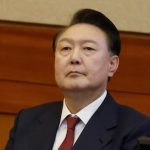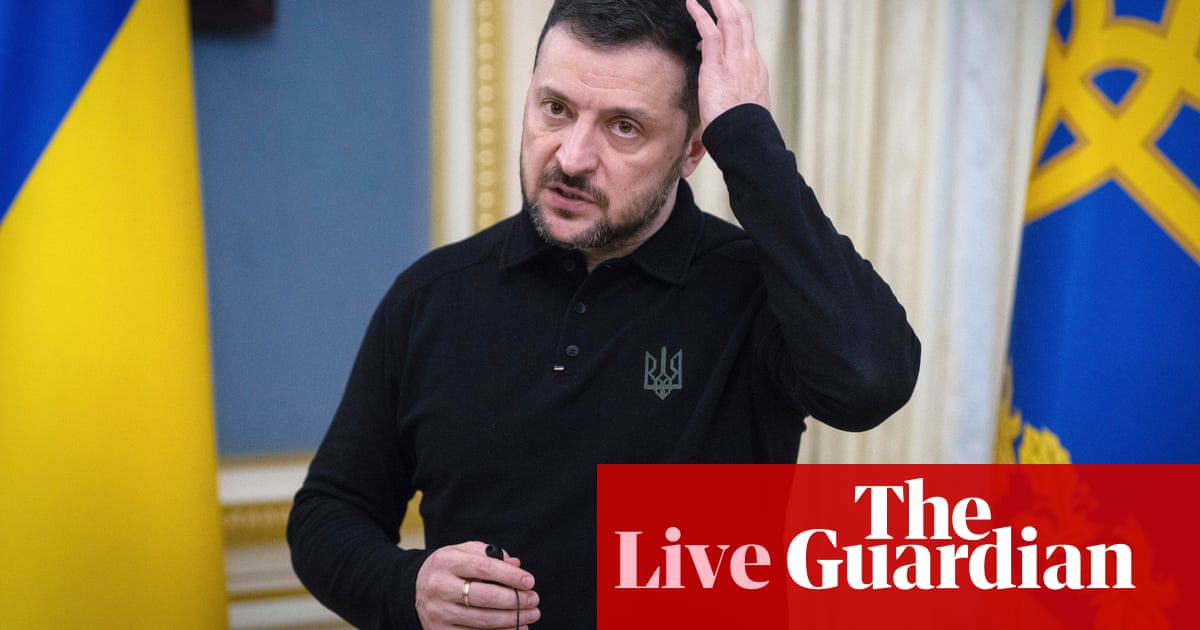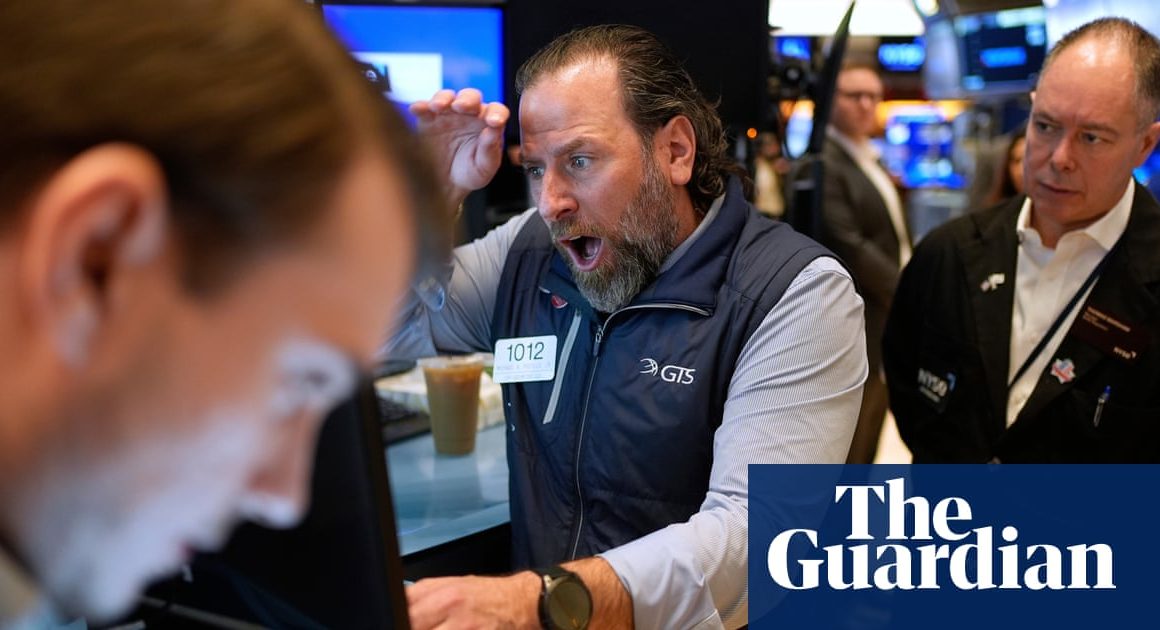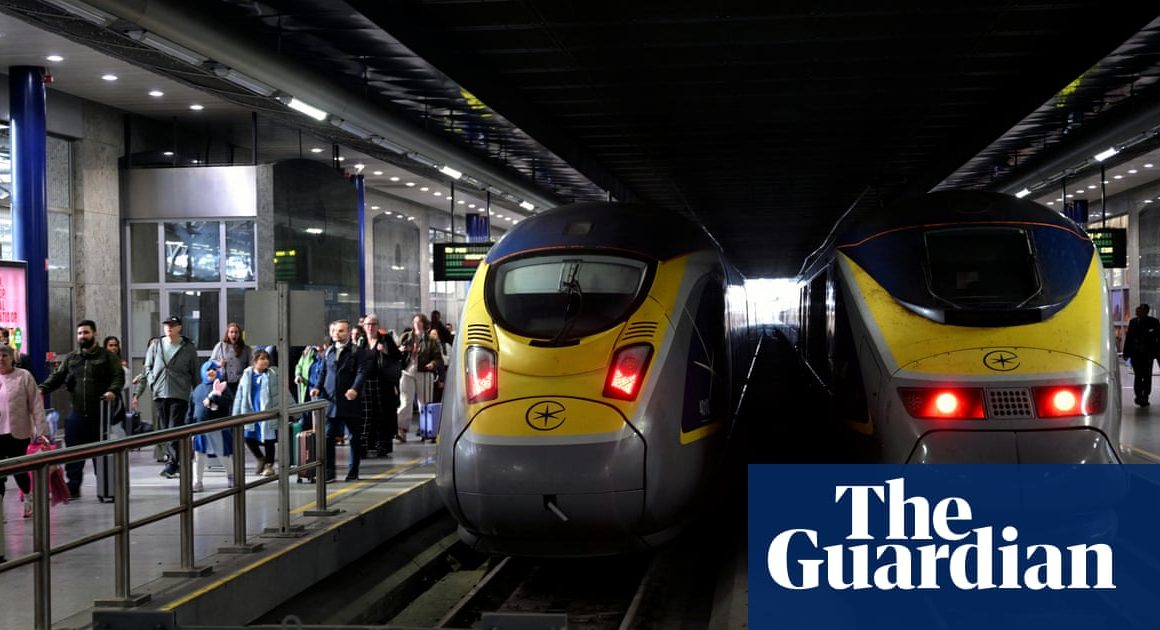‘Tone it down, sign that deal,’ Waltz tells Ukraine, but insists differences with US can be reconciled
We have also heard from the current US administration in the last hour as White House national security adviser Mike Waltz spoke to Fox News.
Reuters reported that he said Ukraine should “tone it down, take a hard look and sign that deal” on mineral with the US.
Pushback from Ukraine on the deal and how Trump is carrying out peace talks is simply unacceptable, Waltz said, given everything the United States has done for Ukraine.
But he insisted that these difference of views could be reconciled as “the president also said how much he loves the Ukrainian people.”
Waltz denied that U.S. allies and Ukraine were not being consulted.
“There’s a term for this in diplomacy. It’s called shuttle diplomacy, because bringing everybody to the table at once just hasn’t worked in the past,” he said in comments reported by Reuters.

Key events
-
Ramp up your defence spend when I tell you or Trump will call you, Rutte tells Nato allies
-
2% defence spending will not keep us safe, Nato’s Rutte warns as he calls for increased funding
-
US could adjust sanctions against Russia as part of ‘elegant deal’ for peace, US Bessent says
-
‘Tone it down, sign that deal,’ Waltz tells Ukraine, but insists differences with US can be reconciled
-
Polish foreign minister to meet US state secretary Rubio on Friday
-
US Kerry rejects Trump’s words Ukraine started war, but says ‘basic playing field for peace is there’
-
Former Spanish football chief found guilty of sexually assaulting footballer Jenni Hermoso
-
Pope Francis health update
-
Spanish prime minister Sánchez to travel to Kyiv on Monday
-
European plans with Nato troops in Ukraine unacceptable, Kremlin says
-
Ukraine must not be hindered in its path towards Europe, Germany’s Scholz says
-
Risk of war highest since 1945, French prime minister warns, as Macron summons political leaders for talks
-
Overnight Ukraine military update
-
Zelenskyy calls for ‘constructive’ talks with US
-
Morning opening: Can Europe trust Trump?
Ramp up your defence spend when I tell you or Trump will call you, Rutte tells Nato allies
Nato’s Rutte says that Europe will have an important role to play in bringing the Russian invasion on Ukraine to an end.
“We should continue to strengthen Ukraine’s hands so they can come to the negotiating table from a position of strength,” he says.
He says he continues engaging with countries that do not spend 2% of their budget on defence.
“They all have to do it by next summer. I tell them: if you do not react to my phone calls, you may get phone calls from a very nice man in Washington who might be less … well, let’s say … has more of a time limit on what he wants to achieve,” he says.
2% defence spending will not keep us safe, Nato’s Rutte warns as he calls for increased funding
Nato secretary general Mark Rutte is speaking in Bratislava after meeting with the Slovak president Peter Pellegrini.
He says that Slovakia hosts one of the alliance’s multi-national groups, which he calls “very impressive.”
“This presence is a vital part of how we collectively deter aggression and defend our Eastern flank,” he says.
“Over the past week, Europe has seen an extraordinary level of engagement by the new US administration … The US has made crystal clear its commitment to a strong Nato. That should not be in doubt,” he stressed.
But “that commitment comes with an expectation that all Nato allies are contributing their fair share,” he says.
He acknowledges that Slovakia pays 2% of GDP on defence, but notes that “growing threats will require greater investment,” he says.
“We know that the 2014 target of 2% will not keep us safe in the years ahead. Allies must invest more,” he insists.
US could adjust sanctions against Russia as part of ‘elegant deal’ for peace, US Bessent says
The US administration could adjust its sanctions against Russia in response to potential peace talks on Ukraine, US Treasury Secretary Scott Bessent told Bloomberg.
Bessent also joined the growing chorus of US voices criticising Ukrainian president Volodymyr Zelenskyy for his criticism of Donald Trump, saying that “he unfortunately escalated” and “put some daylight” between Ukraine and US, and calling his remarks “inappropriate.”
He revealed that his frustration is to do with the lack of progress on the minerals deal with the US.
“President Zelenskyy, when I met with him, assured me he would be signing the minerals deal in Munich. He has not,” he told Bloomberg Television.
He added that Trump had “a very elegant plan” to “bring the Ukrainians closer to the US” through an economy deal, but it has now turned into “a media circus.”
He threw some light on the US approach to talks, saying:
The sequencing of what was going to happen was: bring the Ukrainians closer to the US through economic ties, convince the American people, the American public, get them onside.
And then tell the Russians, go to the negotiating table with a very fulsome message that if we need to, we will take sanctions up.
He explained that the idea was that “the US with greater economic interests in Ukraine provides a security shield,” he said.
Bessent also turned to discussions on Nato and European defence funding, pointedly praising Poland for its high spending in contrast with other European allies and growth over the last few decades.
When I went to Ukraine, you’re flying to Poland. Poland is spending almost 5% GDP on defence. Look at Poland, sitting next to Ukraine. It is one of the great economic success stories of the past 30 years, after China they have had the fastest growth.
Why couldn’t Ukraine, with some US capital, ingenuity, knowhow, and root[ing] out some corruption, do what as well as their neighbours have done?
Speaking separately about the prospect of the EU dropping some of its tariffs on the US, Bessent said he did not see the proposal, but added:
I think the good thing about president Trump’s negotiating style is that people put things that were not on the table before on the table very quickly.
He declined to comment on the timeline for any Trump-Putin meeting.
… and let’s not forget that US Ukraine envoy Keith Kellogg is in Kyiv today, taking part in talks with senior Ukrainian leaders.
Ukrainian foreign minister Andrii Sybiha said in a social media post that he discussed “ways toward a comprehensive, just, and lasting piece” in his conversation with Kellogg today.
“I affirmed Ukraine’s willingness to achieve peace through strength and our vision for the necessary steps. I also reiterated that the security of Ukraine and the transatlantic is indivisible,” he added.
‘Tone it down, sign that deal,’ Waltz tells Ukraine, but insists differences with US can be reconciled
We have also heard from the current US administration in the last hour as White House national security adviser Mike Waltz spoke to Fox News.
Reuters reported that he said Ukraine should “tone it down, take a hard look and sign that deal” on mineral with the US.
Pushback from Ukraine on the deal and how Trump is carrying out peace talks is simply unacceptable, Waltz said, given everything the United States has done for Ukraine.
But he insisted that these difference of views could be reconciled as “the president also said how much he loves the Ukrainian people.”
Waltz denied that U.S. allies and Ukraine were not being consulted.
“There’s a term for this in diplomacy. It’s called shuttle diplomacy, because bringing everybody to the table at once just hasn’t worked in the past,” he said in comments reported by Reuters.
Polish foreign minister to meet US state secretary Rubio on Friday
Polish foreign minister Radosław Sikorski will meet with US state secretary Marco Rubio on Friday, Poland said.
A spokesperson for the Polish minister told the Polish Press Agency that the pair were expected to meet in Washington DC on Friday.
Later Sikorski will travel to New York where he’s due take part in the UN security council and speak at the UN general assembly next week.
The Polish newspaper Rzeczpospolita reported earlier that the meeting was requested by the US side.
Sikorski was among the first European diplomats Rubio spoke with after assuming office last month.
US Kerry rejects Trump’s words Ukraine started war, but says ‘basic playing field for peace is there’
Former US state secretary John Kerry said “the basic playing field for making peace in Ukraine is there,” as he rejected Donald Trump’s suggestions that Ukraine was responsible for starting the war with Russia and dismissed Russian president Vladimir Putin’s logic for invasion as “lies.”
Speaking at a London conference organised by the consultancy Brand Finance, Kerry, who served as the US state secretary in Barack Obama’s Democratic administration, said this:
Putin individually decided, contrary to what Donald Trump said yesterday or day before, to invade Ukraine. He wants it back. …
He said different motives expressed at different times, that it was Nazis taking over the country, and he had to go in to root out the Nazis. Well, come on, folks. I mean, that lie has been proved. There’s so many lies.
Kerry lamented that “there is no system, unfortunately, by which Putin is accountable to anybody,” with “a total lock” on communication, governance structure in Russia.
“I mean, we saw what happened to [Alexei] Navalny and other, many others, [Boris] Nemtsov, you name it, I mean, there are plenty people who just disappeared,” he said.
“Everybody knows what is going on, so the answer is, yeah, that’s evil,” he said.
But, while criticising US defence secretary Pete Hegseth’s comments at Nato, he insisted that Trump “is trying to find a peace,” even if “it may not be the way that you or I would choose to go about the process.”
He argued that in his view “the basic playing field for making peace in Ukraine is there.”
And why do I say that? Because I think all of the parties need to end the war. And the question is, can you be clever enough, dexterous enough to put together the ingredients, which should be done quietly and privately, not with daily releases on who’s asking for what and doing what?
That’s not the way to affect really good peace diplomacy, because you do have to have a compromise, and you’ve got to have the capacity for that compromise.
And if you close in too much, raising expectations, or getting one group really pissed off because they believe you’re about to give away the store, they’ll come at you, and then that blocks you from doing what you need to do. There is a place of reasonableness in how to resolve Ukraine.
Former Spanish football chief found guilty of sexually assaulting footballer Jenni Hermoso
Spain’s high court has found former Spanish football head Luis Rubiales guilty of sexually assaulting the footballer Jenni Hermoso by kissing her on the lips without consent after the team’s victory in the 2023 World Cup final in Australia.
He was told to pay a fine worth over 10,000 euros and was banned from approaching the player. But the court has acquitted Rubiales of coercion.
Here is our correspondent Sam Jones’s report from Madrid on the court’s decision:
We extensively covered the entire trial, so you can catch up on key arguments here:
Pope Francis health update
Let’s very quickly check on Pope Francis, who is battling double pneumonia at the Gemelli hospital in Rome.
He had a peaceful night in hospital, “got up and had breakfast in his armchair”, the Vatican said this morning.
Vatican spokesperson Matteo Bruni issued a new update after confirming late Wednesday that new blood tests showed a “slight improvement” in some inflammation indices for the 88-year-old pontiff, who had an acute case of pneumonia in 2023 and is prone to respiratory infections in winter, AP noted.
On Wednesday, the pope briefly met with Italian prime minister Giorgia Meloni, who said he was “alert and responsive,” as the pair “joked as always.”
Spanish prime minister Sánchez to travel to Kyiv on Monday
Spanish prime minister Pedro Sánchez will travel to Kyiv on Monday “to reaffirm Spain’s support for Ukrainian democracy and the president” Volodymyr Zelenskyy, he said in a social media post.
He added a hashtag #SlavaUkraini, meaning “Glory to Ukraine”.
European plans with Nato troops in Ukraine unacceptable, Kremlin says
We are now getting first lines from the Kremlin on Russia’s response to media reports about European plans to deploy up to 30,000 troops as peacekeeping forces in Ukraine as part of a broader peace settlement.
The Kremlin has reportedly called them “unacceptable for Moscow,” and “concerning” given they would include a deployment of Nato forces and have ramifications for Russia’s own security, Reuters says.
Russia also criticised Volodymyr Zelenskyy for “inappropriate” comments on the talks, and, similarly to Trump, made claims his approval rating in Ukraine.
Ukraine must not be hindered in its path towards Europe, Germany’s Scholz says
German chancellor Olaf Scholz insisted that Ukraine “must be not hindered” in its decision to be “a democratic, sovereign nation on its way into Europe.”
In a radio interview aired on Thursday, just days before the federal election on Sunday, Scholz rejected Donald Trump’s comments that Ukraine was to blame for the war, saying: “It is not. We in Europe insist on this.”
In the case of a future peace settlement, Scholz said Ukraine must have a strong army, “for which we in Europe and our international and transatlantic partners share responsibility,” Reuters reported.
Risk of war highest since 1945, French prime minister warns, as Macron summons political leaders for talks
In France, president Emmanuel Macron is due to meet with party leaders in just over an hour, at 11am Paris time, to discuss “the existential threat” posed by Russia.
This comes on the back of two meetings with European leaders this week and ahead of his trip to Washington DC to meet with Trump, which the US president said could come early next week.
In a late night social media post, Macron said that “France and its partners have a clear and united position. We seek a long-lasting and solid peace in Ukraine.”
“We are convinced of the need to increase our defence and security spending and capabilities for Europe and each of our countries. Decisions will be made in the coming days and weeks,” he said.
If you were in any doubt as to the seriousness of the situation, French prime minister François Bayrou was quoted this morning by the French media as saying that “the risk of war has never been so high since 1945.”
Overnight Ukraine military update
The Ukrainian military said that Russia launched 161 drones and about 14 missiles during an overnight attack.
The missile attack targeted critical infrastructure in the northeastern region of Kharkiv.
Ukrainian energy minister German Galuschenko said that some of the attacks damaged gas production facilities overnight, Reuters reported.
“The purpose of these criminal attacks is to stop the production of gas needed to meet the domestic needs of citizens and central heating,” he said on Facebook.
Zelenskyy calls for ‘constructive’ talks with US
After exchange of words with Trump, Zelenskyy tried to move the difficult conversation with the US forward ahead of today’s meeting with Kellogg.
In his regular video update on Wednesday night, he said it was “crucial that this discussion and our overall cooperation with the US remains constructive.”
But in a pointed comment, he added:
“Together with America and Europe, peace can be more secure, and that is our goal. But most importantly, this goal must be shared by our partners, not just by us,” he said.
Morning opening: Can Europe trust Trump?
Completely undeterred by public pushback from multiple European leaders, US president Donald Trump repeated his attack on Ukrainian president Volodymyr Zelenskyy overnight, telling the audience at a Saudi-backed event in Miami that he is a “dictator without elections.”
He also repeated his false claims about the US spending on Ukraine, and warned Zelenskyy “he better move fast or he is not going to have a country left; gotta move, gotta move fast.”
Separately, Trump also attacked Zelenskyy for treating US Treasury Secretary Scott Bessent “rather rudely,” because the Ukrainians “wouldn’t sign the document” confirming his proposed minerals deal. (Zelenskyy said he wasn’t prepared to “sell [Ukraine] away.”)
“They are no longer dealing with the same United States as they were dealing a few months ago,” Trump said.
“If you’d told me just three months ago that these were the words of the US president, I would have laughed out loud,” former Russian president Dmitry Medvedev said.
You and me both, Dmitry.
Suppose you are a leader of a central and eastern, Baltic and Nordic European frontline nation. How confident are you that the US would immediately come to the rescue if Russia attacked your territory within the next few hours?
Exactly. That’s the problem.
A new Polish poll published overnight showed remarkable levels of trust in Nato as a whole, with 67% expecting the alliance to intervene if Poland gets attacked by Russia. On the other hands, that’s 17%* thinking it wouldn’t. That is a lot.
Some may decide it is better to be safe than sorry and follow the Danish lead in rapidly increasing defence spending to prepare for what they fear comes next.
Prime minister Mette Frederiksen said the country needed “massive rearmament” to avoid war as she announced Denmark would spend 50bn DKK over the next two years on defence.
The investment brings Denmark’s defence spending up to 3% of GDP in the next two years (up from 2.4% in 2024), the highest level in over half a century.
Should others follow? Will they? Let’s see.
Amid this war of words, US Ukraine envoy Keith Kellogg will meet with Zelenskyy in Kyiv today, and we are expecting some lines from that meeting – and more from across Europe. I will bring you the latest.
It’s Thursday, 20 February 2025, and this is Europe live. It’s Jakub Krupa here.
Good morning.
* Update – an earlier version of this post said that 33% of Poles who took part in the poll thought that Nato would not come to intervene if Poland got attacked by Russia; the correct number is 17%; 33% included all don’t knows.












